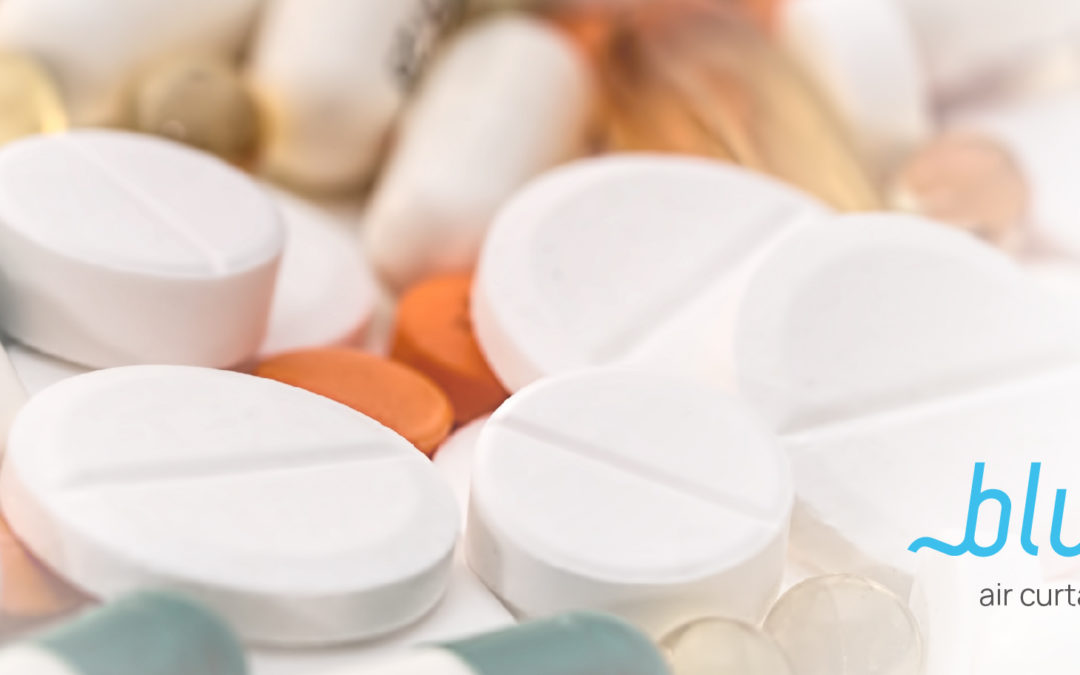One of the biggest risk factors in transporting pharmaceuticals is the temperature change products face during transit. Maintaining a controlled temperature chain is critical in transporting pharmaceuticals, many of which must be kept within very strict temperature limits to avoid affecting the chemical stability of products.
Out of the top 10 medicines sold across the world, only one does not require any form of temperature control. In the UK, pharma transport is regulated by the Medicines and Healthcare Products Regulatory Agency (MHRA) and the EU Good Distribution Practice guidelines (GDP) on transporting medicinal products for human use. Building GDP compliant vehicles for temperature-controlled vehicles is essential to any pharmaceutical distributor, and it is the responsibility of each operator to build vehicles that can adequately transport products at the required temperatures.
However, during distribution rides maintaining cargo temperature can be an impossible task. Even the highest powered refrigeration units on the market will struggle to pull down the temperature of products and internal air sufficiently quick after door openings. This makes for increasingly challenging situations when the time between stops is short, as is often the case during city distribution. The same difficulties apply to scenarios where the products need to be kept at a higher temperature than the ambient temperature. Furthermore, if air is not properly circulated the cooling unit alone may struggle to keep a consistent temperature throughout the cargo area.
In 2010, we released our solution in the form of BlueSeal air curtains – as a way for operators to maintain the climate of a vehicles interior during and after unloading. It does this through creating an optimal airflow over the door of a vehicle that is obstruction free for the driver and significantly reduces the energy consumption of cooling equipment to restore the temperature to set point after door openings by 30% (vans) to 45% (trucks).
What does the addition of BlueSeal mean for pharmaceutical transporters? Firstly, the risk of goods spoiling is significantly reduced through a vastly improved cold chain management. Secondly, cooling fuel consumption is drastically lowered by reduced strain on equipment meaning that operators can make more deliveries using less fuel. And thirdly, hygiene is greatly improved by using an air curtain instead of PVC strips as no physical contact is necessary during loading/unloading.
On occasion, we have advised customers to use BlueSeal for distributing airflow within the vehicle itself. If air is not properly circulated throughout the cargo area, warm air will rise to the top of the vehicles leaving stacked goods particularly vulnerable to temperature change.
Ordinarily, BlueSeal will switch off automatically once doors are closed. However, after performing successful tests in a temperature chamber, one pharmaceutical client of ours, Brocacef in Holland who specialise in transporting particularly temperature-sensitive products, have kept air curtains operational while doors are closed and the vehicle is moving. In doing so, BlueSeal creates a continuous circular air flow inside the vehicle that helps with the homogenisation of air temperature in the vehicle. This creates an additional benefit, through enhancing the air flow within the vehicle itself and ensuring that temperature is constant throughout the cargo area.
There are a range of other considerations to bear in mind when producing a GDP compliant vehicle for transporting pharma that greatly improve the vehicles ability to safely transport goods. These include temperature mapping and monitoring to accurately help monitor parts of the vehicle susceptible to temperature change (many companies will require auditable reports which this will do for you), and ensuring that temperature loss can be controlled through adequate insulated lining of the vehicle itself.
If you are interested in how BlueSeal can help your vehicles safely transport pharmaceuticals get in touch with Tom at [email protected] or give us a call on +31 (0)20 210 1254.





